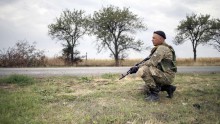Last week a Den/The Day special correspondent went to the ATO zone near Mariupol – together with a team of officers from the Armed Forces Moral and Psychological Support Center. Their goal is to bring the top brass and the ordinary soldier as close as possible. It is no secret that even a commonplace movement from one apartment to another changes the individual, their habits, relationships with neighbors, etc. These are unnoticeable changes on a micro-level. But what about the changes that occur in the mind of the serviceman when he finds himself in the war? When he gets not just into the barracks but into a dugout under a regular fire exchange, where he not only is always in hard field conditions, but also faces a never-ending danger to his life, where he, after all, sees what death is.
On the way from Kyiv to the ATO zone, Lieutenant-Colonel Rustam Mamedov, chief of the department of prompt psychological support of the Armed Forces Moral and Psychological Support Center, speaks about the trip’s mission: “In late 2015 the Chief of the General Staff issued an order to organize highly-mobile groups of internal communications in the army units. In compliance with this order, we began our work in early 2016. We selected candidates for the groups to be stationed in the ATO zone. We also drew up a program to teach military units’ commanders methods and techniques of effective internal and external communication with the personnel. We were to organize an as effective as possible link between the armed forces’ top command and the personnel in order to be able to address the likely problems. This task has a very wide range of components – from moral and psychological work with serviceman to consultations in some crucial and pressing matters. The soldier must see that his problems are taken care of and he is not just a cog in the machine.”
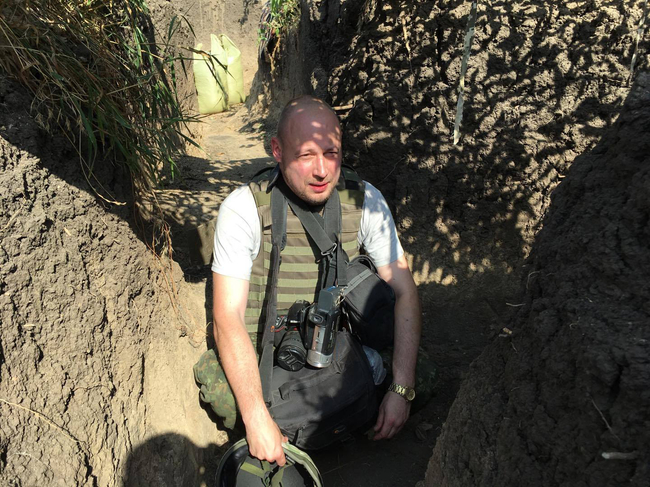
“We are mingling with the military, looking into the problems of a soldier, and doing our best to help them,” Mamedov continues. “In fact, apart from having a patriotic motivation, the serviceman should be aware of becoming a true military professional. The awareness of this will add one more sense to his life. After all, he must be proud of serving in the Armed Forces of Ukraine. The element of inner psychological satisfaction is very important, as is confidence in the future of himself and his children in the land he defends. The war took many unawares. Many were just unprepared for it. This raised a host of hitherto unexpected problems. The army began to revive, which also produced more and more new demands and challenges. Our motto is: ‘To hear, to support, to help.’ An effective communication, which knits together the army’s living body, is indispensable here. This is why supernumerary highly-mobile groups of internal communications were formed. The personnel of our groups are recruited from among military and civilian servicemen. We have several groups: ‘Alpha,’ ‘Omega,’ ‘Bravo,’ ‘Delta,’ and ‘Charlie.’ In our case, the core of the group is an inspector, i.e. I, an ideologist who also performs the function of a legal advisor, a psychologist, and a chaplain. We are directly subordinate to the Chief of the General Staff.”
OUR FRONTLINE
Such words as “cutting edge” or “van” sound jocular and somewhat unserious to a layman. But it is here that Ukrainian positions are regularly fired at, mostly by night. Our guys, our heroes are dying here, no matter how hard one may try to avoid these words. You can see the enemy’s positions through a small hole in the dugout. They are 700-800 meters away. At some segments, the distance between the sides is only 75 meters. The Ukrainian military and Russian mercenaries are looking at each other eye to eye.
The Day met servicemen of a motorized infantry brigade at one of the strongholds. The brigade mostly consists of Vinnytsia residents. Taking into account that I had recently attended the opening of the Den’s Photography Exhibit in the Vinnytsia region, I could not help recalling that it is not only beautiful there but it is also difficult to leave because… locals regularly invite to have supper at their place. They cook very tasty meals, and it is difficult to refuse. Now, too, when I have missed lunch in the unit and am writing a text under fresh impressions, a Vinnytsia man brought me a sandwich. This is what relationships in the army – and in life – are based on.
Undoubtedly, foul language and excesses do occur in the army. Some of the emergencies end up tragically. This problem is caused by such objective factors as boredom, anguish, depression, and conflicts. Taking into account that for some bureaucrats the serviceman remains just a line in the record card (as a journalist, I have already come across the sometimes strange logic of military bureaucracy, which takes time and frays nerves), it’s futile to expect working out an adequate strategy of dealing with the lower tiers. So you can only imagine clashes “on top” between the dyed-in-the-wool bureaucrats and the innovators who really want to reform the army, for whom the army is, after all, their lifetime.
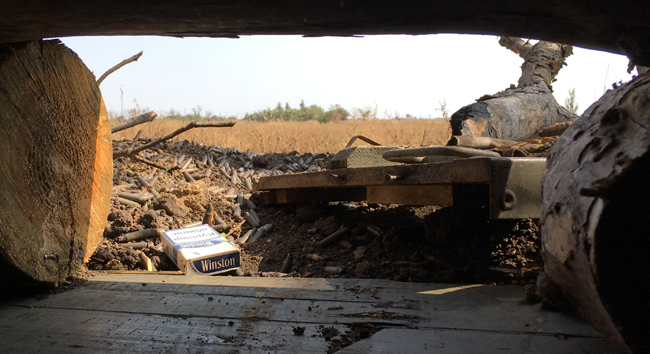
And what will you say about the recent claim of Colonel Oleh Druz, whom Minister of Defense Stepan Poltorak has suspended from duty as chief of the psychiatric clinic at the National Military Hospital, that 93 percent of the military may be mentally ill. The ill-considered words have hurt an enormous number of the military and veterans. They do not want to be treated as mentally deranged. They want to be taken care of as worthy defenders of the state. To be taken care of in good time! For the army’s linchpin is the ordinary soldier rather than the general who also used to be an ordinary soldier.
“You see, we had to form almost a new army in super-critical conditions,” Lt.-Col. Serhii Cherevychnyi, a senior officer at the department of prompt psychological support, says to The Day. “For this reason, we were forced to hastily recruit people, sometimes ignoring training and testing. We did not and do not have as much time and NATO has had. The Alliance has been training career officers under special programs, charting and funding innovational programs for years and decades. This made it necessary for our department to visit military units, mingle with the servicemen, and look into their problems. Not all of them immediately trust us. Some think it is an inspection of sorts. But in reality, we are in a state of war that lasts for the fourth year in a row, and we should do our best to make the top-to-bottom communication channel work as effectively as possible. No matter where a serviceman is at the front or in the rear, he must know that he is remembered.”
For almost all the time that we drove from Kyiv to the front, Cherevychnyi held in his hands a small memo book which is handed out to commanders. It has concise tips to officers on how to work with the military from the psychological angle – how to spot a soldier’s likely problems, and what to do to help and motivate him. Not least in this case is respect for the leader.
“My assignment in the ‘Alpha’ group is to gauge the level of the psychological readiness of officers and men to perform their missions,” Cherevychnyi continues at the end of the first day of work with the military. “I assess the personnel’s morale. I teach servicemen methods to activate their psyche and mobilize their psychological resources for overcoming the consequences of stress which occurs quite often in war. If we don’t do this, the problem will only be aggravated and there will be more post-traumatic disorders and psychic traumas. The serviceman must know how to control his behavior. We also do individual work at the request of servicemen, such as psychological consultations. There are people with different personalities, characters, and educational backgrounds among the military. Each of them has a destiny of his own. Sometimes there are elementary ways out of a psychological problem, but the individual cannot just see them. He really needs help from an outside specialist. Our task is to show this way out.”
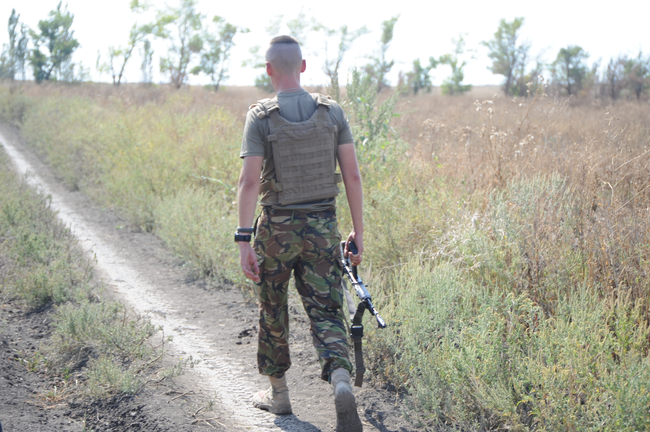
“Today, for example, I helped one to find the way out of a situation,” our interlocutor concretizes. “This man’s contract expires in just one and a half months, but he demanded being demobilized without any reasons. The point is he has some family problems – his wife has filed for divorce because she hasn’t seen the husband for a long time. Living apart alienates people. He was in despair. Everything depressed him, he felt as if he were in a trap, for he wanted to save his family. I had to tell him how he should explain to his wife the particularities of military service, its importance for their family and, after all, how the wife can influence her husband’s service. You know, he literally blossomed out before my eyes. He will go on leave to see his wife at home and explain his position to her. But still, very much depends on the commander who should be not just a source of commands and drills but an adviser, one who can see the soldier as a personality with a broad range of particularities, problems, and virtues. After all, the commander should meet the soldier halfway, if necessary. This is true leadership.”
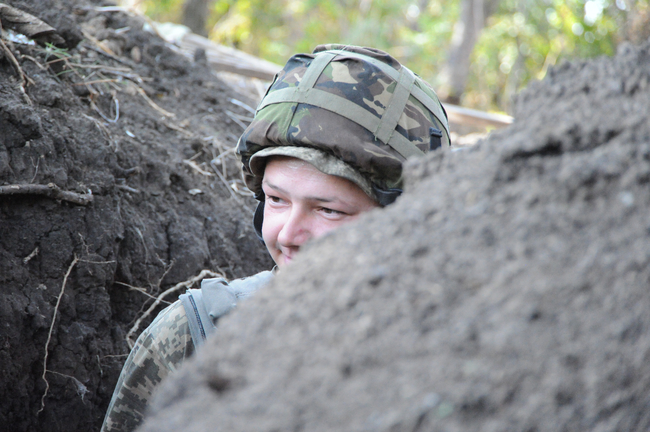
Another member of the group is Senior Lieutenant Illia Pohorilskyi, an officer at the Moral and Psychological Support Center’s analytical department. His job is to provide legal advice and do ideological and explanatory work. Pohorilskyi sums up his conclusions at the end of the first day of staying at one of the units: “There were very many questions about doing military service, especially on contract. The militaries are aware of the situation but would like to know more in detail about provisions in the guideline documents, particularly the joint directive of the Ministry of Defense and the General Staff on demobilization. For many of them signed the contract until the end of the special period and do not know when they will get their discharge. Some wish to renew the contract for some time. These details should also be explained to them. So what interests the servicemen most of all is the duration of service and the procedure of dismissal. I didn’t come across conscripts. I mostly deal with contract men who were mobilized and then signed certain contracts. There are no conscripts in the ATO zone. The militaries also have a lot of questions about financial provisions, such as payment of the relocation allowance and compensation for signing the contract. I mean when one was mobilized and then signed a contract without interrupting the service and was to receive money. The servicemen would also ask about this. Today, for example, there was not a single question about acquiring the status of a participant in hostilities, although I expected some. I concluded from this that these problems haven’t so far arisen in this unit. This all depends on the unit’s commander who organizes this kind of work.”
IN THE TRENCH
When we were going to the positions, we met a girl who could be taken for a usual active volunteer unless she was introduced to you before. “I came here quite recently, but what struck me most of all is the fact that there usually are young commanding officers at platoon-based strongholds,” Iryna Karpiuk, press officer at the Mariupol operational-tactical grouping, told The Day, putting on a bulletproof vest before the departure. “I saw the respect they inspire in soldiers. These guys make decisions by themselves – their eyes are literally burning, they are absolutely motivated and clearly aware of the reason why they are in the ATO, even though the people they command may be much older than their commanders. I heard soldiers in almost every place I visited say that they will follow their commander and never step back. This struck me very much. Here, on the positions, not at the places of permanent location, you discover entirely different aspects of the soul and relationships. This sensation fills me more and more with every passing day.”
Iryna herself is a young pretty girl from Odesa. She is really a sight to feast your eyes on, which improves the soldiers’ mood when she comes to the frontline together with journalists. An individual, who can only see a trench-studded steppe, lives in dugouts and remains in continuous stress for months, sometimes needs a simple care, a glance, and a good word, i.e., all that which makes him aware of his importance here on the most dangerous line.
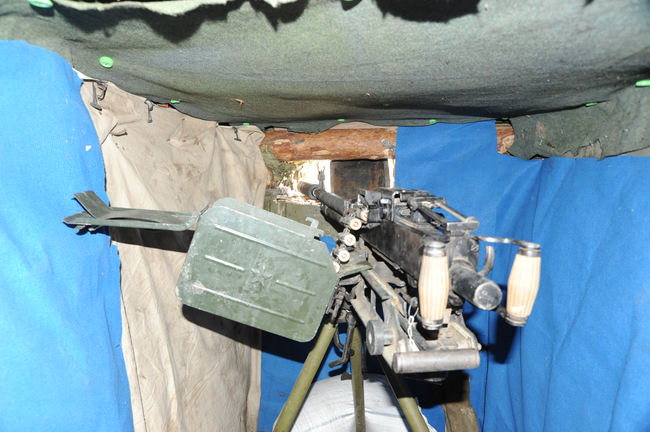
Anatolii M., an army serviceman, tells me in the trench (always reminding me of the necessity to duck) that a 20-year-old soldier was killed a few meters from here with a sniper’s bullet. Mortar shells landed recently next to the dugout, wounding a few soldiers. When it was hot, militants would deliberately shoot at the dry grass with incendiary ammunition in order to set our position on fire. In this inferno, our guys were trying to put out the flame in every possible way. For a fire engine will never reach this place… There is a minefield all around with a thin trench that leads to the observation post. The guys, drenched in sweat, dug this trench right in the enemy’s sights. Although October is coming up, it is a sizzling summer inside the dugout, but soldiers have to wear heated helmets and bulletproof vests. It is especially hot in the kitchen, where a very tasty dinner is being cooked. What matters here are skilful hands and wits. A soldier must know how to cook, build, repair equipment, dig up trenches, and create elementary living conditions. Besides, he must also defend his homeland with weapons in hand. There are two key points in the last phrase, which distinguish our army from a Western one. The US army does not fight on its land and is based on contracts. In Ukraine, the soldier fights for his own land, even if he is also on contract. If a NATO serviceman is not provided with proper conditions at the theater of operations, he will demand that the customer carry out the contract. Our militaries will use an iron pipe if they don’t have a lifting jack. Or if the unit runs out of water or gasoline, our guys will just chip in and buy it in a store, without waiting for delivery.
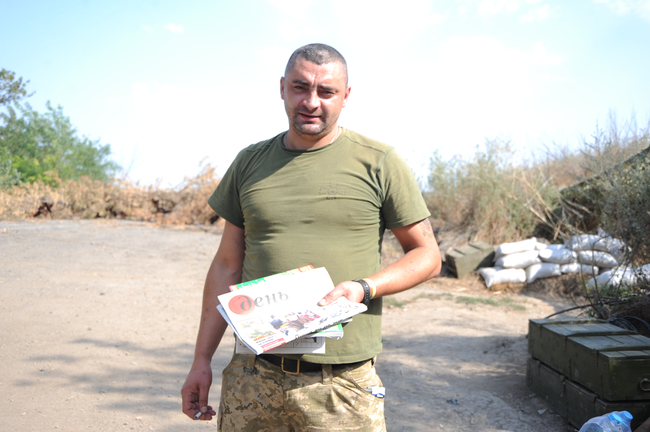
“Volunteers help us very much,” serviceman Yaroslav S. says in the dugout. “They never forget about us, although it is said that the volunteer movement is on the wane. Undoubtedly, governmental supplies have also improved in the last while. Helmets, bulletproof vests, clothes, footwear – we badly need all this, especially in dugouts and trenches, when cold and drizzle come. But we’ve been here for two years now, so we’ll hold out for a third year too.”
FOR LAND AND FAMILY
Having finished smoking the cigarette and readjusting the rifle on his back in a swift move, company commander Oleksandr M. shares his thoughts leisurely: “My enemies are the people who came to our land, deceived some of the locals, telling them about ‘punitive squads,’ and promised then to save them from the latter, but they in fact robbed them. This is why I am here, on the front, fighting for my land and family, although it seems to be a long way from the Donbas. But, in reality, the enemy is very close to all Ukrainians. Unfortunately, far from all civilians are aware of this. Whenever I come home to the Vinnytsia region, I often come across sort of incomprehension and indifference among the civilians. As if it is not their war. Of course, not all are like this. But what motivates me is my family.”
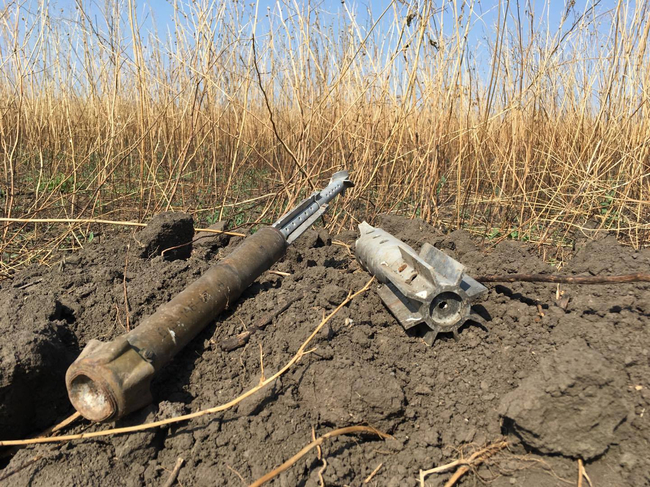
I drew a conclusion, mingling with ordinary soldiers, that the cause of their depression is not even the living conditions or internal conflicts. It is separation with home and family that sometimes causes depression.
“I will have a daughter soon,” Oleksandr says and adjusts his helmet, leaning against the breastwork to avoid the snipers’ sights. “When my heart is heavy, I phone home and immediately feel better. Land and family is my motivation to fight.”

We said goodbye to the observation post, the name of which, as well as the names of servicemen, I cannot mention. Together with the Moral and Psychological Support Center officers, we moved on along the frontline of Sector M. “On the cutting edge,” so to speak. We wish the unnamed soldier to have a healthy daughter born, who will surely see her dad come home – the dad who is doing his best to keep the deceivers away from her land.


